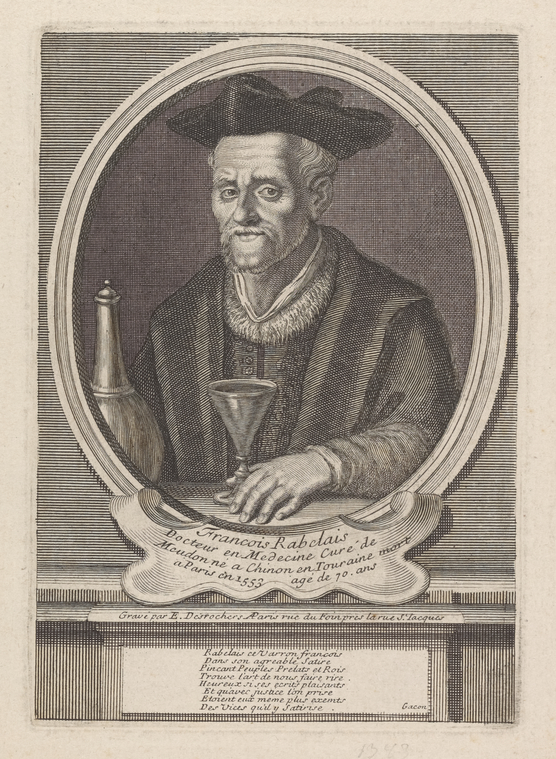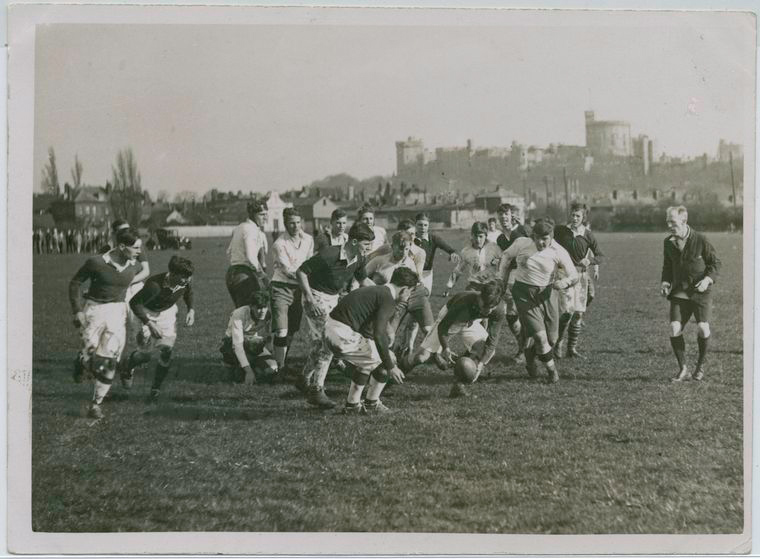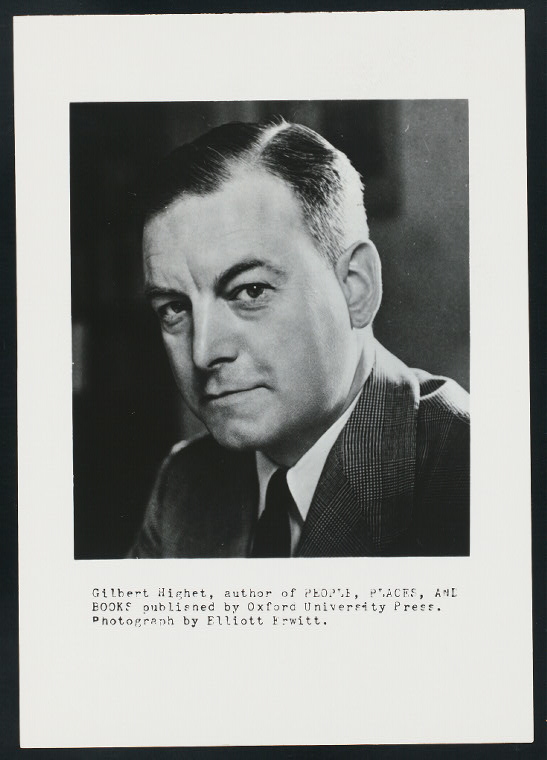Latin: The Divine Chore

"Do one thing or the other—amuse yourself or learn Latin; but don't try to do both."
—Gertrude, Paul’s mother, Sons and Lovers
After a fast life as an editor in the New York publishing world, Ann Patty moved to the country—yet, this in itself did not prove to be the respite she needed. At age 58 she became terrified that she would follow in the footsteps of her mother, leading a life in slow decline. In her memoir published June of this year, Living with a Dead Language, Patty says,
"I had watched my mother live that death-in-life trio for the last ten years of her life. If I followed her path, I'd be dead in eight years.”
For Patty, the remedy for inactivity was to take up Latin—to audit classes at Vassar and Bard, attend workshops, whatever it took to challenge her mind. And given that her mother studied the language in Catholic school, it seemed a fitting choice of hobby. Fitter still, Latin gave Patty an opportunity to gain a more intimate understanding of the English language, which as a former editor was irresistible. Still, one wonders what the use of studying Latin as a 58-year-old might be—or as a schoolgirl, even. Let’s face it, Latin lacks the utility of Spanish or Mandarin. Yet, the enjoyment that Patty, myself, and others have found studying the language bears consideration. With an infinity of choices, why study Latin?
Certainly, one answer alone does not exist. There is something about its manner, its economy, the way it sounds, which casts a spell on the listener. Latin! The language of learning, the church, of poetry, &c.. Years ago, when education was rare, Latin was the gold standard in Western education. To Rabelais, it was not only the language of the Law, but of the gentleman—
“How then could these old dotards be able to understand aright the text of the laws who never in their time had looked upon a good Latin book, as doth evidently enough appear by the rudeness of their style, which is fitter for a chimney-sweeper, or for a cook or a scullion, than for a jurisconsult and doctor in the laws?”
Latin could be a ticket out of your limiting class background, as in the case of Julian Sorel in Stendahl’s Red and the Black. Jude in Thomas Hardy’s Jude the Obscure is a less successful of example of this. The spell which Latin cast on Jude is familiar to the contemporary student of Latin—Jude fashioned Latin to be both an obscure fascination and a ticket out of the doldrums to a life of opportunity and scholarly pursuits. However sincere his interest, Jude the novice was momentarily disappointed in the labor which Latin required. Having received his first Latin textbook by post, Jude finds that,
“[…] there was no law of transmutation, as in his innocence he had supposed […], but that every word in both Latin and Greek was to be individually committed to memory at the cost of years of plodding.
Jude flung down the books, lay backward along the broad trunk of the elm, and was an utterly miserable boy for the space of a quarter of an hour. As he had often done before, he pulled his hat over his face and watched the sun peering insidiously at him through the interstices of the straw. This was Latin and Greek, then, was it this grand delusion! The charm he had supposed in store for him was really a labour like that of Israel in Egypt.”
Though the charm of Latin is a strong one, is it strong enough to stand the test of endless declensions and ablative absolutes? Not in all cases.
True, Latin is no longer the educational fixture par excellence. But the fact that Latin has become more of a choice rather than an educational requirement may work in favor of its enjoyment. Many literary luminaries and figures of the past have had an absurd relationship to the language when it occupied an inestimable place in the gentleman’s education. Indeed, Latin was often a tool of punishment as we see in Victor Hugo’s Confessions. Gilbert Highet in his brilliant work, The Classical Tradition, says that at school at the age of sixteen, Hugo,
“[…] was looking forward to a day's excursion with the janitor's daughter; his attention wandered; his master jumped on him, making him stay in all Sunday and write out 500 lines of Horace; and, in his lonely attic, he poured out curses on the jailers who distorted Horace, who made Vergil a load for children to drag like oxen, and who
'...have never had a mistress, or a thought.’”
Hugo may count himself lucky as one who knew the worth of study, understanding that such tactics only served to sour the student’s relationship with Latin. Tom Tulliver in George Eliot’s The Mill on the Floss was not so lucky to have this perspective. Tom was forced by his father to study the language in order to get on in the world as an educated man and procure employment. Indeed, like many schoolboys of yore, Tom had no idea as to why anyone would study Latin, or what Latin was, for that matter—
“It is doubtless almost incredible to instructed minds of the present day that a boy of twelve, not belonging strictly to "the masses," who are now understood to have the monopoly of mental darkness, should have had no distinct idea how there came to be such a thing as Latin on this earth; yet so it was with Tom. It would have taken a long while to make conceivable to him that there ever existed a people who bought and sold sheep and oxen, and transacted the every-day affairs of life, through the medium of this language; and still longer to make him understand why he should be called upon to learn it, when its connection with those affairs had become entirely latent.”
Of course, it was Tom’s sister, Maggie, who’s mental talents were far more fertile a field for the “gentleman’s education,” much like Jenny Jones in Henry Fielding’s Tom Jones who had,
“[…] obtained a competent skill in the Latin language, and was, perhaps, as good a scholar as most of the young men of quality of the age.”
Tom, in his impudence, would hear none of it, going so far as to deny help from his sister Maggie—
“‘You help me, you silly little thing!" said Tom. "I should like to see you doing one of my lessons! Why, I learn Latin too! Girls never learn such things; they're too silly.’
‘I know what Latin is very well,’ said Maggie confidently. ‘Latin's a language. There are Latin words in the dictionary. There's bonus, a gift.’”
Highet argues that the worst transgressors of the beauty of the language were often its protectors—those who during the European Renaissance sought to purify it from vulgarities in order to revive a more tasteful and faithfully classical practice of the language. What followed were drills upon poisonous drills. In such an environment, an organic love for the beauty of Latin is surely a rare thing.
In the twenty-first century our Anne Patty is, of course, under no pressure to learn the language to prove herself a proper scholar or a gentleman. Her connection with Latin is a personal one—it began as a way of avoiding making the mistakes her mother made, but became so much more.
"When I embarked on this Latin journey, I was running away from her legacy; but instead, I had run right into her. I was doing something she would have wished me to do, something she herself had loved.”
Through various authors, Patty is able to learn more about herself and her habits, to live the language through the lessons of Catullus, Lucretius, and Horace. For Patty it embodied both her relationship with her mother as well as established a distance with her mother that her mother herself would have wanted. And on a practical level, Latin gave her the structure and discipline she needed at that crucial transitional period of her life.
As for me? I think it’s hard to give a reason, especially one reason, why Latin appeals to me. It is a language among many, it’s true. The routine of study plays a part, as does heritage, and maybe there’s even a bit of pride involved from knowing the roots of many English words, and so on. Yet, all of these ‘reasons’ fall short. Let’s admit a few things—I’ll probably never find myself in conversation with anyone nor will I ever be an incredible Latinist. I am, all told, a very poor student of Latin.
Nevertheless, this I know—in a culture of bottom lines, of utility, of quid pro quo (har har), there’s something distinctly settling about exploring the ossa Latinitatis. In the classical spirit one finds something you don’t find on Facebook or Youtube or any other media machine. We call Latin a dead language—I will not contest this. But Gilbert Highet’s summary of the classicist’s relationship to death may make us thing twice about the value of what is dead—
“[…] for the Greeks death was as natural a process as birth : mournful, no doubt, but not to be resisted, not to be hated and vainly shunned. Its symbols were not the crowned skeleton, the corpse crawling with maggots, the dust-covered chapfallen skull, but the quiet urn, the marble relief on which the dead and the living clasp hands with an affection too deep and tranquil for any display of lamentation. Among the most beautiful funeral monuments ever created are the fifth-and-fourth-century gravestones from Athens, on which young wives and daughters, although dead, are depicted as they were when they lived, immortalized in that lovely serenity which in later ages appears only in statues of the saints and of the Madonna.”
Those most ardently anti-dead-language may reasonably ask, “what good is it to master a dead language?” I admit, the benefits are not quantifiable, or immediately tangible. But Highet is surely on the mark when he reminds us that in any healthy, functioning relationship, a distance must be maintained, that mastery is never the key. Sometimes, those who benefit most richly from Latin, Greek, or any language considered past its sell-by date, are not the scholars, the academics, the masters, whose relationship with the dead can be a sort of fallow, scientific morbidity. It is, rather, those whose grasp of the language brings them up short, those who in their “misinterpretations” foster a whole new era of imagination. As Highet says,
“Classical culture always produces its finest effects in the modern world when it penetrates to the ordinary people and encourages a Rabelais to teach himself Greek, puts Chapman's Homer in the hands of Keats, or makes Shakespeare enthusiastic over Plutarch.”
Let’s not forget, it is misinterpretation that is responsible for much of what we call ‘original.’ The distance between the student and the language of the dead—therein lies the true seeds of originality. So, despite our differences in age, background, gender, &c., I cannot help but heartily agree with Patty when she says,
"Perhaps the great Virgil is correct, and the seeds of our future are contained in the distant past. The future waits for the unknowing past and present to catch up to me.”
To some, the past is a graveyard to be observed, protected, or neglected. To to others, it is a garden to be tended. The way in which we regard the past determines the kind of future we will build. Is history something dead and gone, something final, something laid out before us to shrug our shoulders at and dismiss as “old hat?” Or is it a vital, rich soil, where the struggles and suffering of those that have come before us are waiting to be redeemed by the choices we make? The philosophy of the former, an essentially conservative outlook, has never been of interest to me.
Works to Read From This Post
- Living with a Dead Language by Ann Patty
- The Classical Tradition by Gilbert Highet
- Jude the Obscure by Thomas Hardy
- Gargantua and Pantagruel by Francois Rabelais
- The Mill on the Floss by George Eliot
Read E-Books with SimplyE
 With your library card, it's easier than ever to choose from more than 300,000 e-books on SimplyE, The New York Public Library's free e-reader app. Gain access to digital resources for all ages, including e-books, audiobooks, databases, and more.
With your library card, it's easier than ever to choose from more than 300,000 e-books on SimplyE, The New York Public Library's free e-reader app. Gain access to digital resources for all ages, including e-books, audiobooks, databases, and more.
If you don’t have an NYPL library card, New York State residents can apply for a digital card online or through SimplyE (available on the App Store or Google Play).
Need more help? Read our guide to using SimplyE.



Comments
Why "dead" languages
Submitted by Sandra Hunter (not verified) on August 10, 2016 - 10:27am